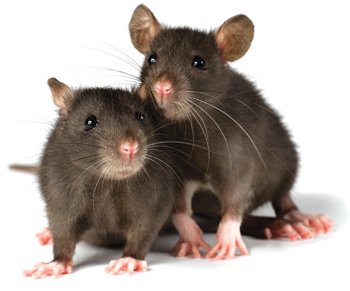Mice can make a variety of sounds, depending on the situation and the individual mouse. Some common sounds that mice make include:
We at rapid Rodent Removal want you to know
Squeaking: Mice can make high-pitched squeaking sounds when they are excited, distressed, or annoyed.
Chewing: Mice may make chewing sounds as they gnaw on objects, which can be loud enough to be heard through walls or ceilings.
Scratching: Mice may make scratching sounds as they move around, particularly when they are running or climbing.
Whistling or chirping: Mice may make high-pitched whistling or chirping sounds when they are happy or excited.
Growling or grunting: Mice may growl or grunt when they feel threatened or aggressive.
It is important to note that mice are social animals and they communicate with each other through vocalizations, body language, and other forms of communication. If you hear strange noises coming from your walls or attic, it is possible that mice or other pests may be present.
Mouse Sounds
Introduction to Mouse Sounds
Have you ever heard strange noises in your home and wondered if you have a mouse infestation? Mice produce a variety of sounds for communication, and understanding these sounds can help us in many ways. In this article, we'll explore the fascinating world of mouse sounds, their purposes, and how they affect humans.
Why are mouse sounds important?
Mouse sounds play a crucial role in their social interactions, survival, and mating. By understanding these sounds, researchers can gain insights into their behavior and develop better pest control strategies.
Common types of mouse sounds
Mice produce a range of sounds, from ultrasonic vocalizations to audible squeaks. Let's dive deeper into the different types of mouse sounds and their purposes.
Ultrasonic Vocalizations
Characteristics
Ultrasonic vocalizations are high-frequency sounds above the range of human hearing (20 kHz). Mice produce these sounds in various social contexts.
Purpose
These vocalizations facilitate communication among mice, allowing them to share information about their environment, potential threats, and mating opportunities.
Distress Calls
Characteristics
Distress calls are loud, high-pitched squeaks usually emitted by mice when they feel threatened or trapped.
Purpose
These calls serve to alert other mice of danger and potentially attract help or deter predators.
Grooming and Communication Sounds
Characteristics
Grooming sounds are soft, rhythmic noises mice make while grooming themselves or each other. They also produce quiet squeaks and chirps during social interactions.
Purpose
These sounds help maintain social bonds and convey information about an individual's well-being.
Mating and Courtship Sounds
Characteristics
Mating calls are a specific type of ultrasonic vocalization that males produce during courtship.
Purpose
These sounds help attract females and stimulate their receptivity to mating.
Infant Mouse Vocalizations
Characteristics
Infant mice, also known as pups, produce high-pitched squeaks and ultrasonic calls.
Purpose
These vocalizations help the mother locate and care for her offspring, and also stimulate maternal behavior.
Territorial and Aggressive Sounds
Characteristics
Territorial and aggressive sounds include hissing, growling, and
snapping noises.
Purpose
These sounds serve to establish dominance, defend territories, and deter potential threats.
Audible Mouse Sounds
Characteristics
Audible mouse sounds are those that humans can hear, usually ranging between 1 kHz and 20 kHz. They include squeaks, chirps, and rustling noises.
Common audible mouse sounds
Some common audible mouse sounds are:
Scratching: produced when mice move around, often inside walls or on wooden surfaces.
Gnawing: a consistent noise created when mice chew on materials to maintain their teeth or create nesting material.
Squeaking: a sound typically associated with distress or communication among mice.
How Mouse Sounds Affect Humans
Pest control
Recognizing mouse sounds can help homeowners detect infestations early, allowing for timely pest control measures.
Research
Mouse sounds provide valuable insights into their behavior, helping scientists study neurological and physiological processes in both mice and humans.
Mouse Sounds vs. Rat Sounds
Differences
While both mice and rats produce ultrasonic vocalizations, rats tend to emit lower-frequency sounds. Additionally, rat vocalizations are generally louder and more complex.
Similarities
Both mice and rats use sounds for communication, social bonding, and mating. Their vocalizations serve similar purposes, such as warning of danger and establishing dominance.
Recording Mouse Sounds
Equipment
To record mouse sounds, specialized equipment like ultrasonic microphones, preamplifiers, and recording software are required.
Techniques
When recording mouse sounds, it's essential to minimize background noise and ensure a quiet environment. Researchers often use soundproof chambers to achieve accurate recordings.
Mouse Sounds in Pop Culture
Movies
Mouse sounds have been used in movies to create suspense or add a touch of realism to scenes involving mice.
Music
Some musicians have incorporated mouse sounds into their compositions, using them as creative sound effects or even sampling them for electronic music tracks.
Frequently Misidentified Mouse Sounds
Insects
Sounds made by insects, such as crickets or beetles, can sometimes be mistaken for mouse noises.
Electrical noises
Electrical devices or wiring can produce sounds that may be misinterpreted as mouse activity.
Conclusion
Mouse sounds play a vital role in the lives of these small mammals, serving various purposes in communication, mating, and survival. By understanding and recognizing these sounds, humans can better address infestations, contribute to scientific research, and appreciate the complex world of these fascinating creatures.
Frequently Asked Questions
What do mouse sounds mean?
Mouse sounds have different meanings depending on the context, such as signaling distress, establishing dominance, or communicating with other mice.
Can humans hear all mouse sounds?
No, humans can only hear a limited range of mouse sounds. Ultrasonic vocalizations, which are common among mice, are above the range of human hearing.
How can I tell the difference between mouse and rat sounds?
Rats generally produce lower-frequency and louder vocalizations compared to mice. Additionally, rat sounds tend to be more complex.
Can mouse sounds be harmful to humans?
Mouse sounds themselves are not harmful to humans. However, the presence of mice in your home can indicate a pest problem, which could lead to health risks or property damage.
Do mice make sounds when they're scared?
Yes, mice emit distress calls when they feel threatened or trapped. These high-pitched squeaks serve to alert other mice of danger or potentially deter predators.
What Sound does a Mouse make ?
Mouse/Mice are known for scratching and scuffling sounds as they scurry along baseboards, drywall, floorboards, and other places in your home. Scratching, squeaking, scurrying, and gnawing are just a few sounds you may hear these pesky pests making inside your house. If you hear these sounds you should consider Mouse Removal & Trapping from Rapid Rodent Removal. Dont let this scare you into some sort of musophobia fit.

